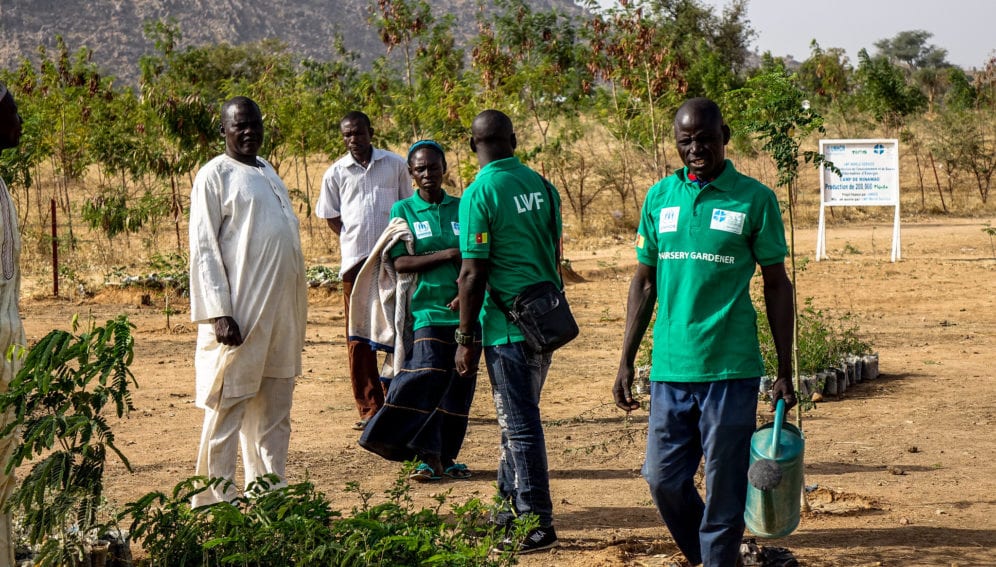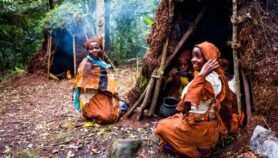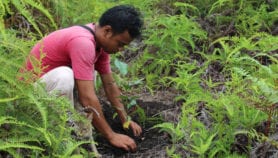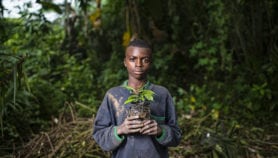29/04/19
Underrepresented voices needed in conservation debates

By: Sam Otieno
Send to a friend
The details you provide on this page will not be used to send unsolicited email, and will not be sold to a 3rd party. See privacy policy.
[NAIROBI] Debates and policy processes regarding global conservation need to value the perspectives of groups such as those in Sub-Saharan Africa who may have less powerful positions, a study suggests.
According to UK-based researchers, whereas a group of conservationists argue that biodiversity should be protected because it protects people, others such as those who hold senior positions emphasise the need to protect biodiversity to preserve nature for its own sake.
“We were frustrated by the way debates on the future of conservation were dominated by a small group of people who all came from the United States,” says Chris Sandbrook, the study’s lead author from the UK-based University of Cambridge.
“We were frustrated by the way debates on the future of conservation were dominated by a small group of people.”
Chris Sandbrook, University of Cambridge
The study which was published in Nature Sustainability journal this month (9 April) identified three dimensions of conservative thinking: people–centred conservation, those that value the role of science in conservation and others that relate to the role of corporations and market-based approaches in conservation — known as conservation through capitalism.
Researchers sought the perspectives of 9,264 conservationists from 149 countries through an online survey conducted between March 2017 and May 2018.
Sandbrook, a senior lecturer in geography, tells SciDev.Net that the study was conducted to ensure that the Convention on Biological Diversity negotiations could be informed by the views of the global conservation community who will eventually implement the plans that are to be agreed at a major conservation meeting in China next year.
The study finds that although there are no distinct 'camps' in the distribution of viewpoints, there are links between the characteristics of conservationists and their views in terms of age, gender, and nationality.
“Respondents from Africa, Asia and South and Central America (where most biodiversity is located) tended to be more in favour of people-centred conservation and less in favour of science-led [approach] than respondents from Europe, North America and Oceania,” the study adds. “Conservation through capitalism was favoured by women, those without social science training, younger respondents, more senior respondents and those from Africa.”
The study showed that more than 28 per cent of respondents opposed conservation through capitalism, with only 5.4 per cent and 2.3 per cent being against people-centred and science-led conservation approaches respectively.
Sandbrook adds that the findings suggest that the views held by conservationists from the United States were not representative of those of the wider conservation community around the world.
A growing sense that wildlife should be seen as an important economic asset for development in Africa, explains Sandbrook, could be the reason many conservationists from the region support conservation through capitalism.
“Policymakers might be interested to realise that conservation through capitalism is actually very contentious,” says Sandbrook, adding that some countries such as Bolivia are strongly against this approach.
Yussuf Wato, species manager at the World Wildlife Fund-Kenya, tells SciDev.Net that there is a need to consider both science-based and nature-based approaches in Sub-Saharan Africa.
“As long as we do not get a balance between the competing interests of development and conservation, we will continue to lose biodiversity globally,” Wato says.“The models prescribed for biodiversity conservation in an area should be grounded in or backed by a rigorous scientific study. The bedrock of sustainable development is a healthy nature and we must conserve it if we want to join the league of developed and prosperous nations,” Wato adds.
This piece was produced by SciDev.Net’s Sub-Saharan Africa English desk.
References
Chris Sandbrook and others The global conservation movement is diverse but not divided (Nature Sustainability, 9 April 2019)













